Block Sending Data to Unknown Domain
The callback URL will be present throughout a certain workflow within the application, allowing the operation status and other data to be delivered back to the program via that URL (e.g., publishing dashboard from one server to another server). What if a scammer changes the URL and manages to regain access to the encrypted data? This is a type of Server-side request forgery (SSRF) attack.
A server-side request forgery (SSRF) attack is an attack that misuses server functionality to access or modify resources. By modifying the request URL, the attacker induces a server-side application to make requests to an unintended destination.
NOTE: Domain Configuration support is available in Bold BI Embedded Analytics, but it is not available in Cloud Analytics Server.
Avoid SSRF attack in Bold BI
This attack can be avoided by configuring known domains in Bold BI using a known domain JSON file.
Steps to configure the Known Domain’s
-
Please go to the UMS Administration page in Bold BI and click on the
Configurationtab. You can configure a list of known domains in a JSON file here.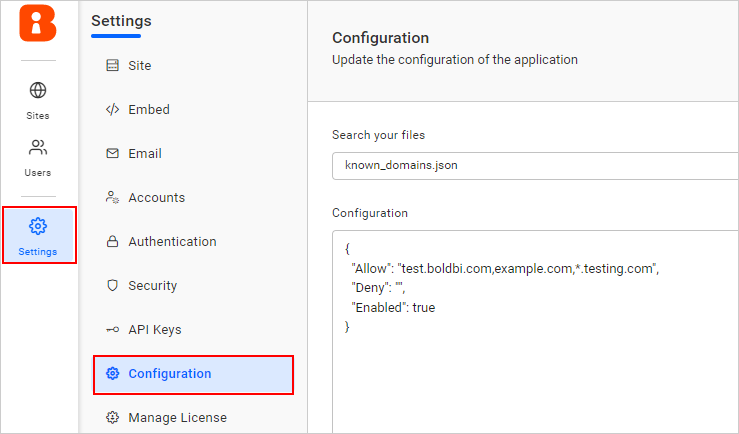
-
Please select the
known_domains.jsonfile to configure the list of allowed and denied domains on this page.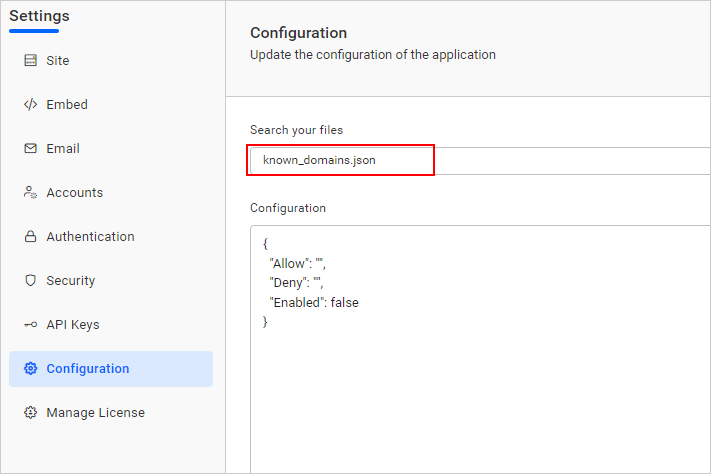
-
If you want to configure known domains in Bold BI, you must set the
Enablednode totrue.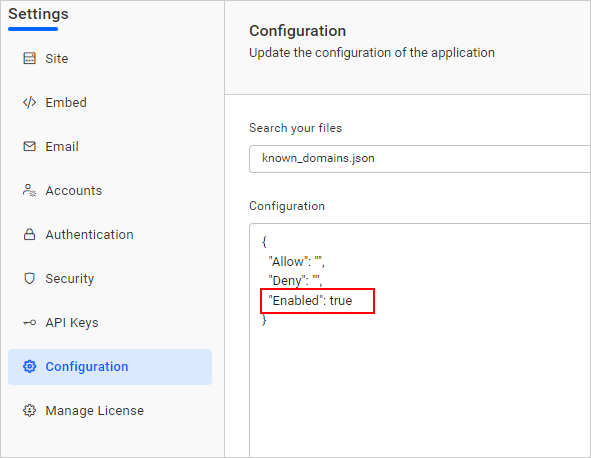
-
You can add a list of denied domains to the
Denynode. If you want to allow or deny all external domains, you can use the wildcard*in known domain JSON nodes. You can also use a wildcard with the subdomain, such as(*.boldbi.com, *.*.boldbi.com).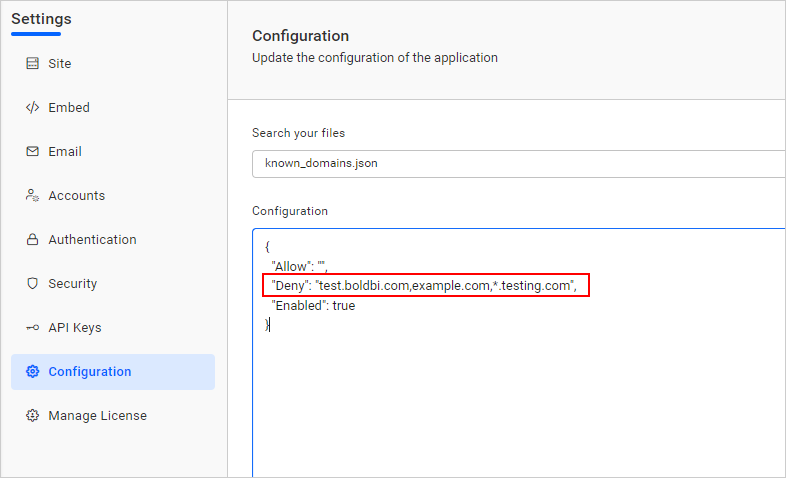
-
You can add a list of allowed domains to the
Allownode. You can add more than one domain by using a comma.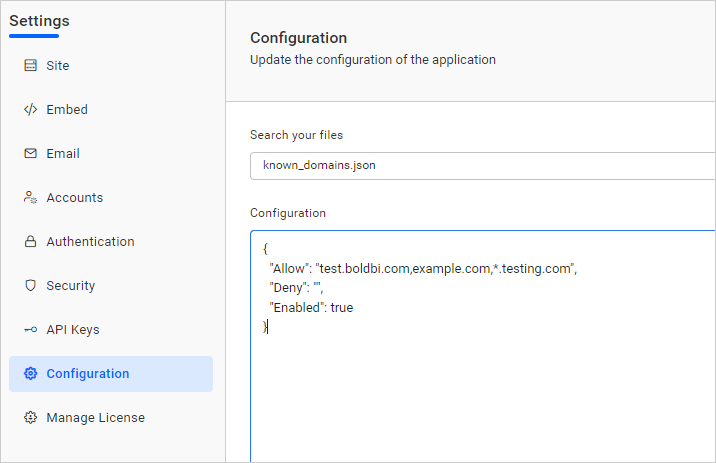
Important: By default, internal Bold BI domains are allowed, meaning domains from Bold BI sites.
-
After configuring, click the
Savebutton to update the Known Domain JSON file.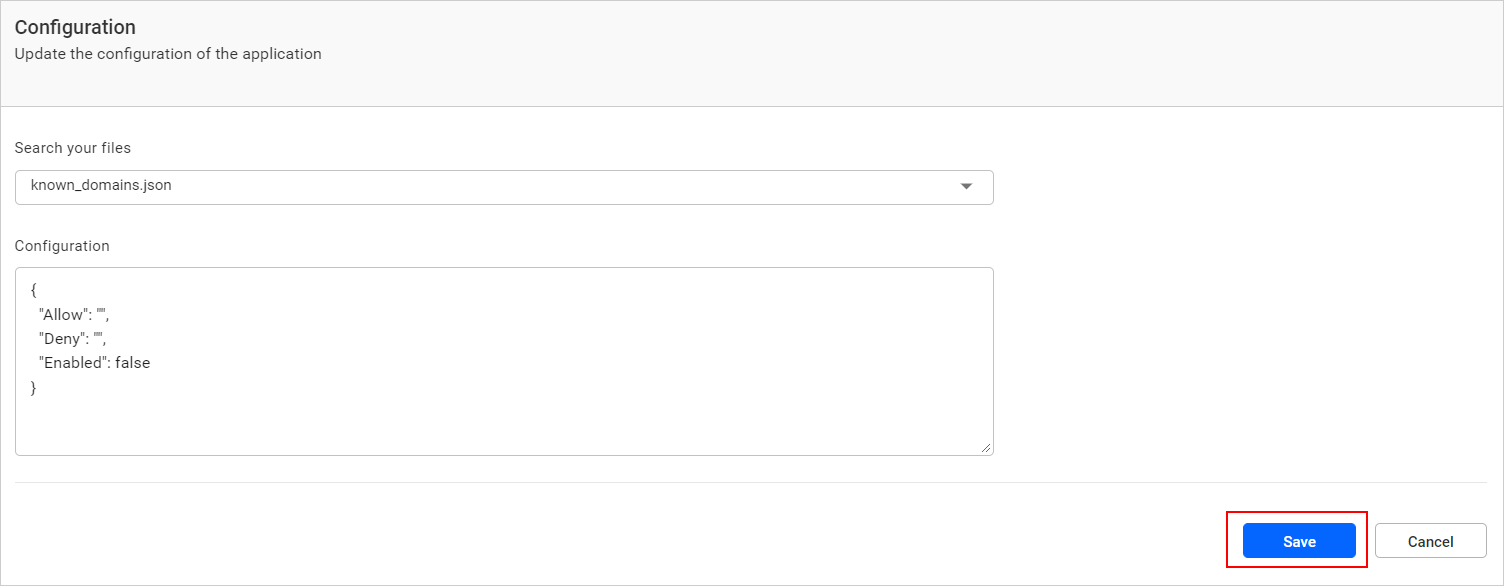
Note: If you have configured the same domain in both the
AllowandDenylists, the domain will be denied as the denied list takes priority.